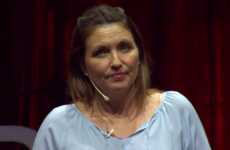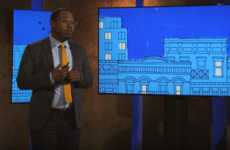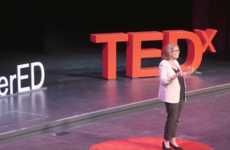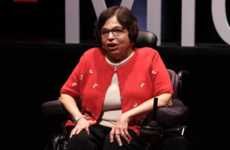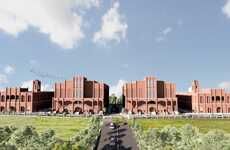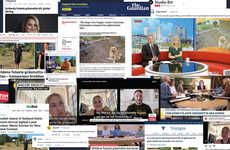
Need Inspiration?
Get inspired by 4,000+ keynote speaker videos & our founder, a top keynote speaker on innovation.
Amy Price Azano's Talk on Autism Deals with Differences in Communities
Kalina N — January 22, 2019 — Keynote Trends
Dr. Amy Price Azano -- an Assistant Professor of Adolescent Literacy in the School of Education, delivers a heartfelt talk on autism that highlights the differences of resource access in rural and urban communities. The speaker's keynote is well-structured and is informed by real-life examples.
Dr. Amy Price Azano begins her talk on autism with a case study of two boys who have autism. While the first one is diagnosed with the condition five miles from its home and undergoes "years of in-home speech and occupational therapies," the parents of the second child have to drive five hours for the diagnosis and have to wait until preschool to gain access to needed therapeutic care. The case study is intended to highlight the differences between urban and rural communities.
Dr. Amy Price Azano's point is that non-metropolitan spaces don't have access to essential human resources that address the condition. She calls attention to three features of rural communities that are largely unbeneficial to children with autism and their families. This includes geographic isolation, population density, and poverty. The struggle of rural areas entails a lack of human resources, a lack of know-how on effectively helping kids with autism, and ill-equipped and underfunded educational systems.
Azano's talk on autism highlights these differences to raise awareness and as a call for action. The speaker briefly details the steps that the Virginia Tech Center for Autism Research is taking to assist with the obstacles in remote areas. Dealing with unique challenges in rural communities, more specifically in the Appalachia region, the institution is also applying for grants to do research in the most remote environments. They are providing families affected by the disorder with the SAFE (Supporting Autism Friendly Environments) Program, as well as a mobile RV assisting service that provides different communities with valuable resources.
Dr. Amy Price Azano begins her talk on autism with a case study of two boys who have autism. While the first one is diagnosed with the condition five miles from its home and undergoes "years of in-home speech and occupational therapies," the parents of the second child have to drive five hours for the diagnosis and have to wait until preschool to gain access to needed therapeutic care. The case study is intended to highlight the differences between urban and rural communities.
Dr. Amy Price Azano's point is that non-metropolitan spaces don't have access to essential human resources that address the condition. She calls attention to three features of rural communities that are largely unbeneficial to children with autism and their families. This includes geographic isolation, population density, and poverty. The struggle of rural areas entails a lack of human resources, a lack of know-how on effectively helping kids with autism, and ill-equipped and underfunded educational systems.
Azano's talk on autism highlights these differences to raise awareness and as a call for action. The speaker briefly details the steps that the Virginia Tech Center for Autism Research is taking to assist with the obstacles in remote areas. Dealing with unique challenges in rural communities, more specifically in the Appalachia region, the institution is also applying for grants to do research in the most remote environments. They are providing families affected by the disorder with the SAFE (Supporting Autism Friendly Environments) Program, as well as a mobile RV assisting service that provides different communities with valuable resources.
5
Score
Popularity
Activity
Freshness


